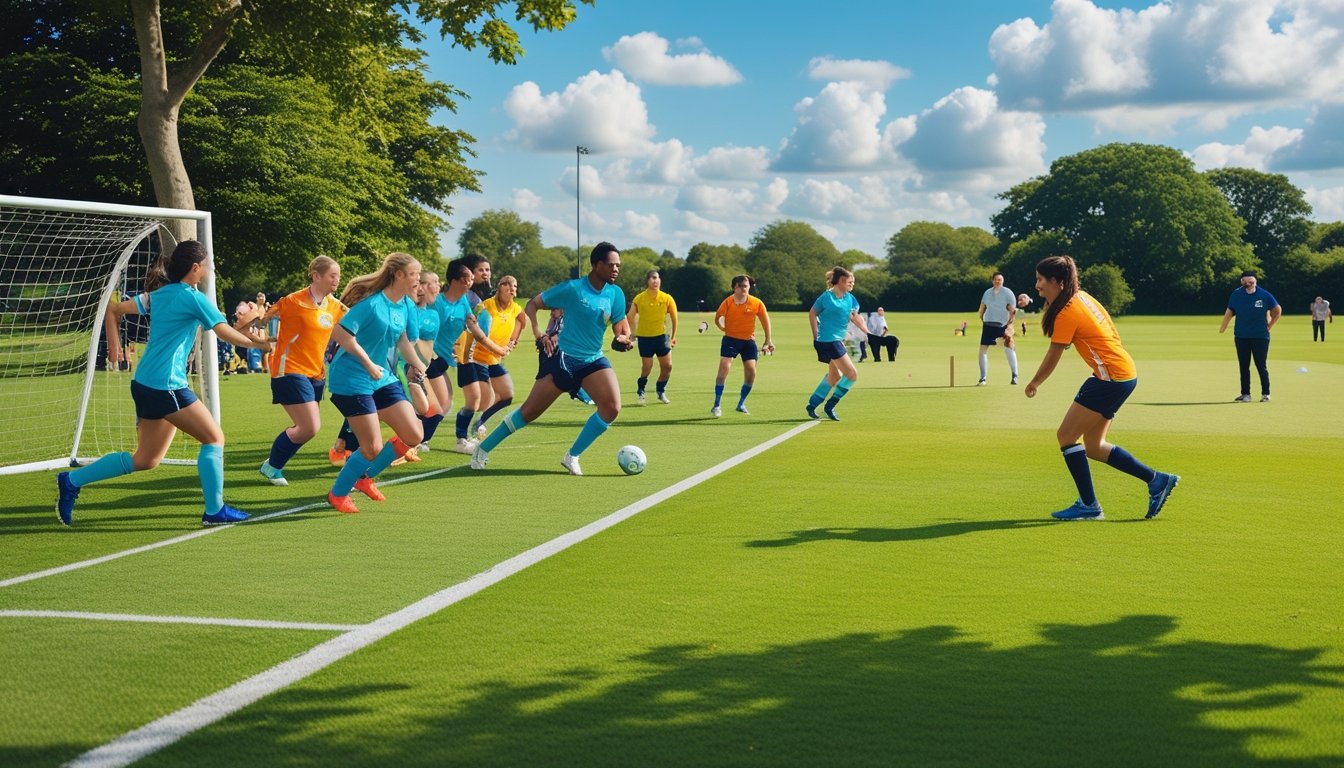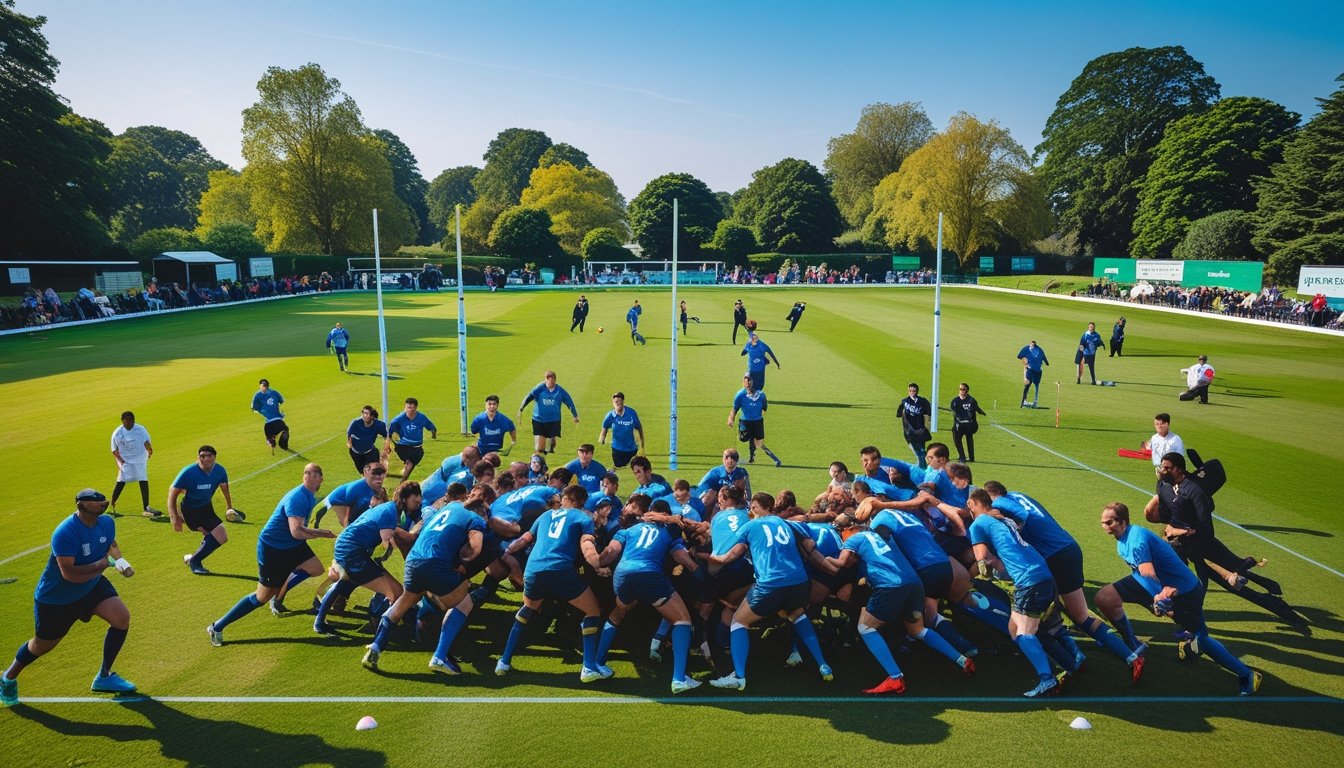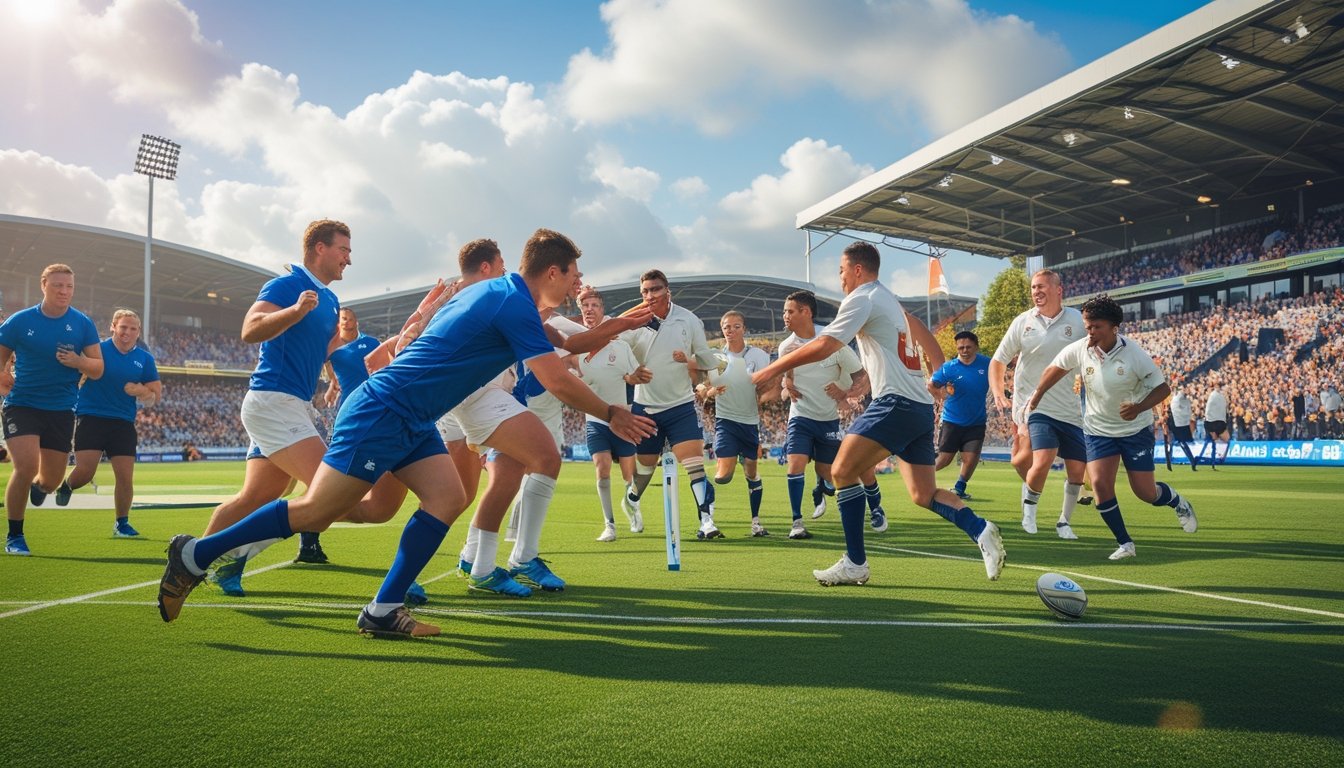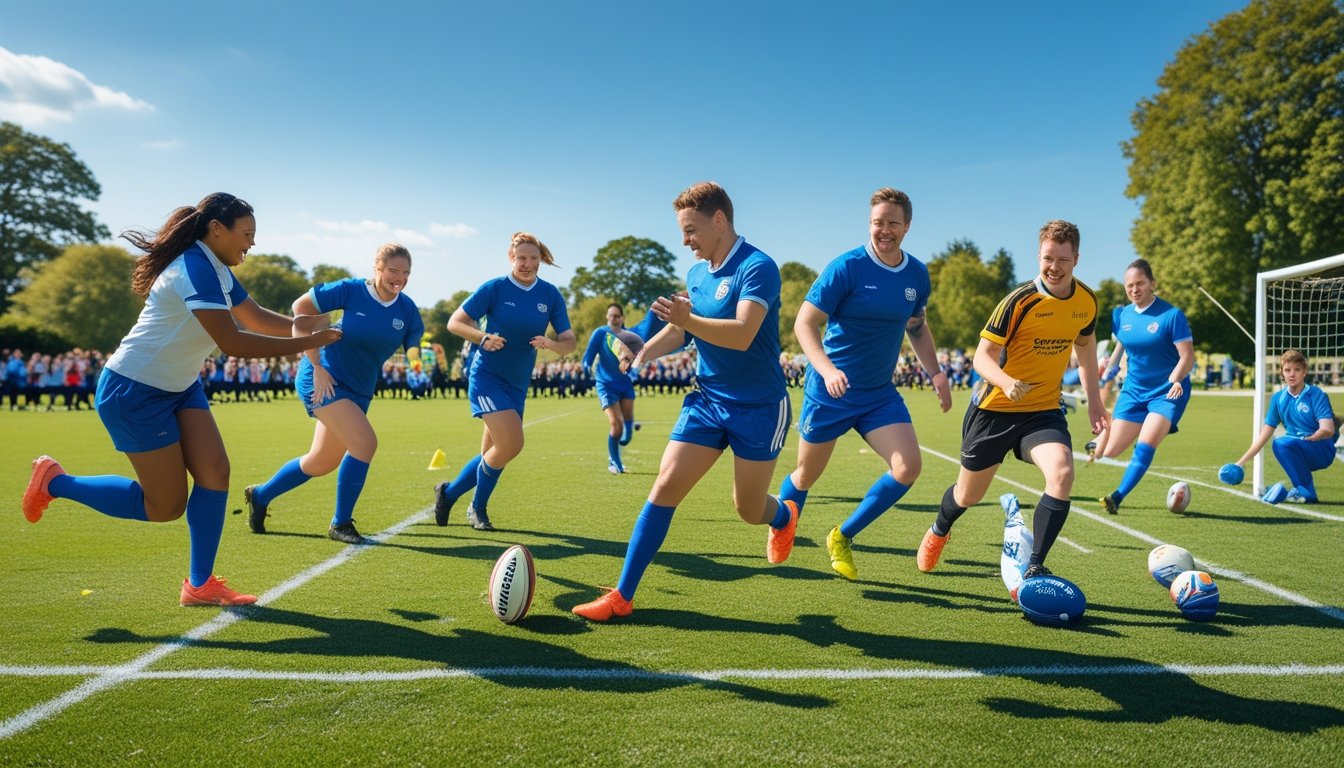Late updated: 03 Jul 2025 13:07
Written by: Emma Saunders
Exploring Popular UK Outdoor Team Sports: A Comprehensive Guide
The allure of outdoor team sports in the United Kingdom captures the vibrant spirit and unity woven into the fabric of British society. From the adrenaline-fuelled matches of football played in fields up and down the nation to the strategic orchestrations required in a game of rugby, these sports truly reflect our nation's passion and cultural heritage. As we explore these activities, it becomes apparent that each sport not only entertains but also fosters a sense of community and belonging.

In addition to mainstream sports such as cricket, which graces our summer months with grace and tradition, there are a variety of unique sports that enrich our landscape. Each sport offers participants an opportunity to engage both physically and socially, enhancing participation across all levels. This variety is a testament to our diversity and the inclusive nature of team sports in our culture.
Embarking on this journey through the UK's outdoor team sports is not just about witnessing the skills and strategies that these activities demand. It is about understanding the passion and dedication that each player and fan brings to the field every match day. By delving into these sports, we cultivate an appreciation for the profound impact they have on individual lives and society as a whole.
Key Takeaways
- Outdoor team sports are integral to British culture and community.
- Football, rugby, and cricket are among the popular sports in the UK.
- Sports events foster participation and enhance community spirit.
Major Outdoor Team Sports in the UK

In the UK, outdoor team sports hold immense popularity and cultural significance. Among these, football, rugby, cricket, netball, and hockey are particularly prominent, featuring a blend of historic rivalries, major tournaments, and wide participation. We explore these sports, focusing on their unique contributions to the British sporting landscape.
Football: The Nation’s Game
Football, or soccer, is deeply ingrained in the UK's national identity. The English Premier League, regarded as one of the most competitive leagues globally, draws millions of fans every season. Clubs like Manchester United, Liverpool, and Chelsea attract international followings due largely to media coverage that spans continents.
Football’s appeal is bolstered by historic competitions such as the FA Cup, thrilling audiences since 1871. Participation isn't limited to professionals; local leagues and school competitions see high engagement levels. The sport also benefits from a structured youth development system, ensuring the continuous rise of new talent.
Rugby Union and Rugby League
Rugby, divided into Rugby Union and Rugby League, enjoys widespread popularity. The Six Nations Championship is a highlight of the rugby union calendar, featuring fierce competition between England, Scotland, Wales, Ireland, France, and Italy. Meanwhile, the Rugby World Cup stands as a pinnacle event, further amplifying the sport's reach.
Rugby League has its heartlands in northern England, with clubs like Wigan Warriors and Leeds Rhinos leading in popularity. Events such as the Super League Grand Final captivate audiences, while community clubs foster grassroots participation. Both codes of rugby emphasize teamwork and athletic prowess, integral to the UK's sporting culture.
Cricket: Historic Rivalries and Competitions
Cricket holds a storied place in UK sports history. The Ashes, a series against Australia, epitomizes classic sporting rivalry, drawing significant attention each time it is contested. The domestic County Championship provides a platform for showcasing local talent, alongside the high-octane action of the T20 Blast.
Cricket's inclusion in the British summer sporting calendar ensures enthusiastic crowds. Clubs from amateur level to prominent county sides play a critical role in the sport’s development. Test matches, One-Day Internationals, and T20 games diversify the cricketing landscape, catering to varied audiences and maintaining the sport's vibrant presence.
Netball and Hockey
Netball, particularly popular among women, sees robust participation at all levels, from schools to professional leagues. The Vitality Netball Superleague features clubs like Manchester Thunder and Wasps Netball, critical to the sport's domestic appeal. Regular international fixtures keep fan interest high, further supported by media coverage and dedicated fanbases.
Hockey enjoys strong heritage, with both men's and women's teams competing fiercely on the international stage. The sport's domestic structure includes national leagues and cup competitions that foster competitive play. Professional and amateur clubs alike invest in grassroots development, ensuring longevity and competitiveness in global tournaments.
Unique and Notable Team Sports Events

In the UK, unique and notable team sports events play a vital role in shaping our sporting landscape. From traditional annual tournaments to innovative outdoor activities, these events contribute significantly to our broader sporting identity.
Annual Tournaments and Championships
The UK hosts several prestigious team sports events annually, attracting athletes and spectators worldwide. Wimbledon is one such event, renowned for tennis excellence and featuring stars like Andy Murray. The Wimbledon Championships epitomise tradition, drawing global attention each summer.
The Open Championship, held at historic venues like St Andrews, is a pinnacle for golf enthusiasts. It's highly anticipated in the golfing calendar, celebrated for its rich history and challenging courses. Another highlight is the London Marathon, a testament to endurance and community spirit, attracting elite runners and amateurs alike.
Emerging and Distinctive Outdoor Team Activities
While traditional events hold an esteemed place, there are fresh, distinctive activities emerging in the outdoor sports scene. Cheese Rolling, for example, held annually in Gloucestershire, sees teams chasing a wheel of cheese down steep hills. While it may sound quirky, it embodies local culture and community participation.
Similarly engaging are the growing number of cycling clubs that influence both local sporting identities and the national sporting scene. With increased interest in cycling, spurred by the Tour de France coverage and Olympic achievements, these clubs foster competitiveness and camaraderie.
Influence on British Sporting Identity
The influence of these events on our national identity is profound. From the grandeur of Royal Ascot to the historic Grand National, horse racing events bring tradition and elegance to the sporting world. These gatherings are synonymous with British culture and style, often featuring prominently in media coverage.
Moreover, sports like boxing, darts, and snooker have a rich heritage here, contributing to a uniquely British sporting identity. They are staples of our community sports scene and often take centre stage in discussions of British sporting prowess. This diverse sporting tradition continues to inspire and unite communities across the nation.
Frequently Asked Questions

In the UK, outdoor team sports are diverse and cater to a wide range of interests. From traditional favourites to exciting adventure sports, there's something for everyone.
What are the most popular team sports played outdoors in the UK?
Football (soccer), rugby, and cricket stand out as the most popular outdoor team sports in the UK. Each has a deep-rooted history and significant followings. These sports are played across the country, featuring leagues and competitions at both amateur and professional levels.
What locations in the UK are known for excellent outdoor team sport experiences?
Wembley Stadium in London and Old Trafford in Manchester are iconic venues for football. For rugby enthusiasts, Twickenham Stadium in London is unmatched. Cricket fans will find Lord's Cricket Ground a top destination. These venues provide not only a place for spectators but also host amateur matches and events.
How can I find local outdoor team sports activities for beginners?
Joining local sports clubs and community centres can be an excellent start. Websites like Pitchero and Meetup can help us find groups and events nearby. Many cities have local councils that organise beginner-friendly sports leagues, offering a welcoming environment for newcomers.
Which outdoor team sports are suitable for UK adventure holidays?
For adventure seekers, consider participating in mountain biking, orienteering, or coastal rowing. These sports often take place in the UK’s stunning national parks and coastal areas. There are numerous organised tours and events that combine these sports with outdoor exploration.
What equipment is typically required for participating in outdoor team sports in the UK?
Each sport has specific equipment needs. For football, a ball, boots, and a kit are essential. Rugby players require a ball, boots with studs, and protective gear such as mouthguards. Cricket involves bats, balls, helmets, and pads. Basic sportswear is usually sufficient for casual games.
Are there any seasonal restrictions for playing outdoor team sports in the UK?
While some sports have distinct seasons, the temperate UK climate allows for year-round play. Football and rugby seasons typically run from autumn to spring but friendly matches occur year-round. Cricket is predominantly a summer sport. Weather conditions, such as rain, might cause occasional disruptions.
